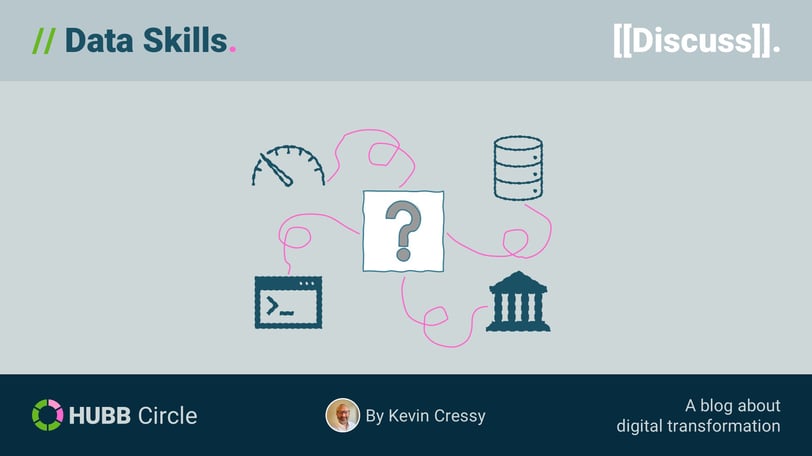What on earth does Octopus Energy have to do with the data skills gap?
A blog post using the Octopus Energy API as an analogy for how organisations can think about capacity building and skills development of teams.
THEME - DISCUSSSKILLS


The data skills gap.
Over the years, I've had many conversations about whether organisations should upskill their teams with data skills. Specifically, I am talking about discussions that relate to teams that may not consider data skills part of their day-to-day work.
In the very early stages of this conversation, it can be difficult to make the business case for investment into a skills development programme to impact business / organisational goals. This is compounded if an organisational digital / data strategy is absent.
This post isn’t a silver bullet to solve that problem, but it offers an anecdote that might help articulate the value of developing data skills.
Allow me to detour back to Octopus…
As part of the purchase of Shell Energy Retail by Octopus Energy, I, along with 1.3 million other customers were switched over to Octopus earlier this year.
As part of that switch, I became aware of Octopus's services, including its Agile tariffs and API (“…way for customers and partner organisations to access the Octopus Energy platform”).
Now, this is interesting as it offers customers a way to access data that they might not have previously been able to access. Consumers can get into the weeds of their energy use and make informed decisions about how they can change energy use behaviours, giving them more choice, more control, and (hopefully) leading to reduced bills. [Note: I am not advocating for the services, just sharing an observation on the opportunity access to the data might bring]
As data becomes more available to us all, this, in my opinion, is an example of why data skills are more useful than ever. When data is made available in these ways, it potentially;
helps consumers reduce their bills (consumer goal: reduce my energy costs), and
helps suppliers offer new and alternative services (supplier goal: make my organisation competitive)
So I’ll finish with a question.
Coming back to the question of upskilling teams within organisations, first, pivot the Octopus example to your organisation. Think about the data services you are creating or the data services you have access to.
With more data skills in your organisation, how might you leverage the data you have access to, to gain better insights and improve your services?
Oh, and remember to align your skills development with your broader organisational goals!
